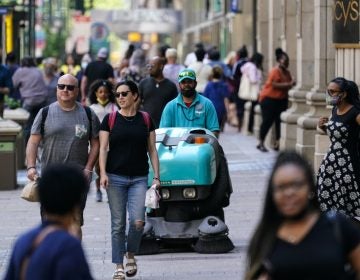Upstart Special Services District wants to clean Germantown’s streets (and move on from there)
-
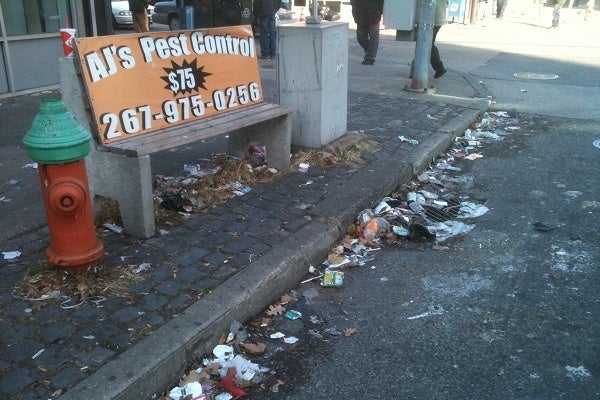
<p>Trash on the ground near Germantown and Chelten aves. (Karl Biemuller/for NewsWorks)</p>
-
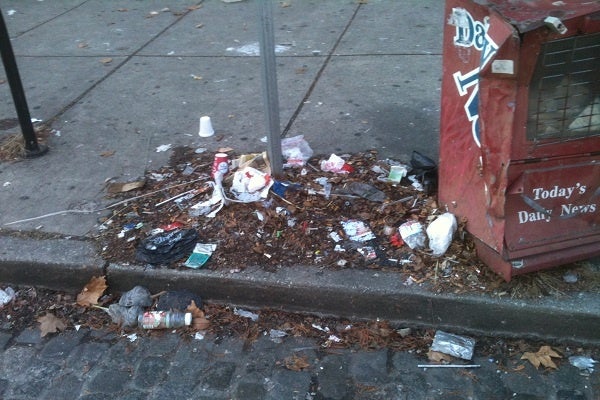
<p>Trash on the ground near Vernon Park. (Karl Biemuller/for NewsWorks)</p>
-
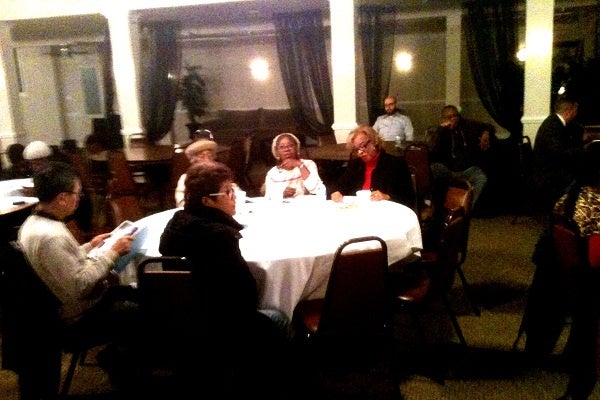
<p>Attendees study the questionnaires along with a map of the proposed GSSD boundaries. (Karl Biemuller/for NewsWorks)</p>
-
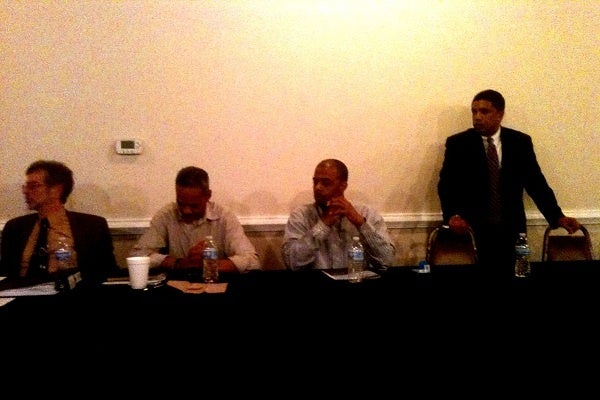
<p>Interim board members (L-R) Irv Ackelsberg, Mark Heppinstall, Rob Wheeler and Bob Bembry. (Karl Biemuller/for NewsWorks)</p>
-
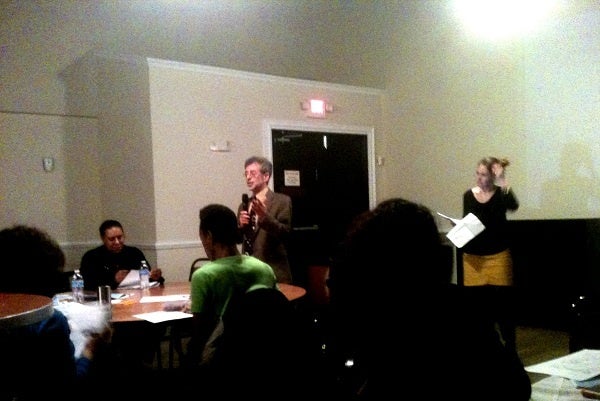
<p>Steering committee member Irv Ackelsberg explains a step in the process of creating a special services district. (Karl Biemuller/for NewsWorks)</p>
When Eighth District City Councilwoman Cindy Bass talked Tuesday evening about what she wants to see happen in the Germantown business district, she called it “the new Battle of Germantown.” And, she added, “I intend that we’re going to win.”
The occasion was a community meeting and progress report on the revived Germantown Special Services District. Once it’s up and running, the GSSD will be tasked with taking care of what everyone in attendance agreed was a major obstacle to revitalizing the neighborhood’s central business district: the omnipresent litter.
At the Flying Horse Center on Pulaski Ave. near Chelten, a Bass-appointed steering committee told several dozen residents and business owners what they’ve accomplished thus far.
Still in its initial stages, the meeting was the second in a series scheduled to be held throughout the winter. The plan is for the rescucitated GSSD “to be up and running by June,” said Robert Bembry, an attorney on Bass’ staff.
The basics
Bembry said that special services districts are established by City Council ordinance. SSD funding comes through an assessment based on a set property-tax percentage for commercial property owners within its boundaries. “It’s not the business, it’s the real estate,” he emphasized.
While the assessment percentage had not yet been set, Bembrey anticipated it would be between 12 and 15 percent of the real-estate tax.
However, a 15-member governing board must first be selected; Bass would choose the first five or six, who would then fill out the roster.
Steering committee member Irv Ackelsberg then explained that the SSD-creation plan must be formulated, and must include these elements: identifying the boundaries to be covered; set assessments on property owners; determining the services to be performed; setting a budget; and naming the governing board.
“There must be a public meeting to present the plan to the public,” he explained. “After the public meeting and final revisions, it goes to City Council.”
Ideas bandied about
As of now, the proposed GSSD area will center on Chelten Avenue between Morris and Baynton streets, Germantown Avenue between Haines Street and Market Square; it will extend along Greene Street and Wayne and Pulaski avenues for one block on either side of Chelten.
Ackelsberg emphasized that the GSSD plan focused on one goal: “How we get the trash picked up in the neighborhood.” The limited-scope approach was taken after other SSD representatives suggested they keep the goals limited at the onset.
“The idea is not to be too ambitious,” he said. “Let’s first get good at it in a small area.”
He cited Mt. Airy’s Business Improvement District (BID) as an example of what the GSSD would be like in the beginning. It has two employees who pick up trash and clean the Avenue in Mt. Airy, plus support functions. He said that the BID’s annual budget is about $150,000 and “we’ll be in the same ballpark.”
Feedback
Audience members had many questions for the presenters. Much of the concern centered on the size of the assessment and whether there was a sufficient commercial real-estate base to support a special services district in Germantown. (Bembry said that the BID was funded by assessments on 150 properties while about 240 had been identified within the proposed boundaries.)
Emphasizing the need for community feedback, committee members repeatedly asked attendees to fill out the questionnaire distributed at the meeting concerning what residents and business owners wanted from a special services district.
“If you have an idea, please ask, please speak,” said Bass. “Don’t assume anyone else has the answer already.”
The questionnaire, plus more information about the GSSD, can be accessed and answered online at http://germantownssd.wix.com/germantownssd/.
Steering committee member Ingrid Shepard said the next meeting will be held in mid-January after community feedback to the questionnaire could be assessed and incorporated into the plan. That will be followed by another at the end of February.
Then, “at the end of a 45-day holding period, the proposal goes to City Council,” Shepard said.
The back story
If the GSSD is successfully revived, it will replace the former district that was authorized in 1995.
Toward the end of its existence, most — if not all — of its funding came from the city, which defunded it last year. Bass’ spokesman Joseph Corrigan said that much of the problem stemmed from the group’s ties to Germantown Settlement.
“The assessment back then was not being carried by the city, but by Germantown Settlement, and we simply don’t know how successful they were,” said Corrigan, noting that assessments would be collected by the new Germantown Special Services District, “not by any one CDC. It will be collected in a manner like the Center City District or the Old City District.”
WHYY is your source for fact-based, in-depth journalism and information. As a nonprofit organization, we rely on financial support from readers like you. Please give today.




